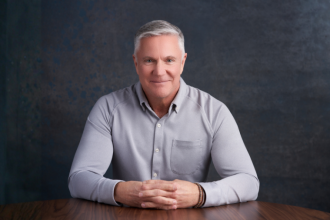Racism has consistently been shown to adversely affect the mental health of Black individuals. Reports indicate that Black adults are 20 percent more likely to experience significant psychological distress compared to their white counterparts, and certain Black communities exhibit higher rates of PTSD. In the context of running a beauty business, 81 percent of minority founders report facing mental health challenges, such as anxiety and depression.
Samia Gore, CEO and founder of FoundnWell—a mental wellness platform aimed at minority founders—describes the immense pressure that comes with launching a beauty brand. “From the moment we launch, there’s this unspoken pressure to prove we’re not just a trend, to hit major numbers quickly, land in big-box retailers, and show traction fast just to be taken seriously,” she states. “It’s hard to overstate how deeply it affects you.”
Recently, Diarrha N’Diaye-Mbaye, founder of Ami Colé, announced the closure of her four-year-old beauty brand, sparking widespread discussions. She expressed feeling “overwhelmed” after enduring rejection from over 150 investors prior to the pandemic. Following the Black Lives Matter movement, some investors appeared to seize on the opportunity to support Black founders under the pretense of “inclusivity.”
“Being one of the only or first in these spaces, suddenly your journey is being used as a litmus test for whether Black beauty brands are ‘worth investing in,'” Gore explains to ESSENCE. N’Diaye-Mbaye noted that, lacking resources to grow sustainably, her brand was rushed to market, with products appearing in 600 Sephora stores just 16 months after launch.
In striving for representation linked to mental health, Black founders often curate their product offerings to celebrate Black beauty, which includes a range of inclusive shades, melanin-focused skincare, and products for textured hair. However, they are frequently advised that addressing the issue of beauty inclusivity is insufficient. “When you’re told to ‘go more universal’, it often means ‘go more white’,” Gore points out. Therapist Amber Dee, also a founder of Black Female Therapists, adds, “Being pressured to deprioritize darker skin tones in order to ‘succeed’ reinforces harmful narratives of undesirability.”
The intersection of identity and business can weigh heavily on Black female founders, as evidenced by a study from The Black Beauty Club, which found that female founders represent themselves in 30 to 70 percent of their brand’s content—compared to less than 10 percent for male founders. Gore describes this as the “hidden tax” on women founders, stating, “You’re constantly carrying the weight of your business, your identity, and your community all at once. It’s exhausting.”
This pressure manifests as anxiety and burnout, with N’Diaye-Mbaye recounting her return to running Ami Colé just weeks after giving birth: “My baby was like a month and a half, and I woke up with Bell’s Palsy,” she shared. “The pressure to always be on deeply impacts the mental health of Black founders, especially women, who often feel the need to overperform just to be seen as credible,” says Dee.
The current beauty market presents even more challenges for Black founders seeking success compared to five years ago. Gore emphasizes that the uncertainty they face transcends financial concerns. “It’s about whether your story and your voice even matter,” she explains. This pressure to downplay community and inclusivity in favor of mainstream success can take a toll on Black founders’ sense of identity and purpose, potentially leading to mental health issues like identity fatigue, imposter syndrome, and grief.
It is crucial to recognize that a Black founder’s performance is not a measure of their worth. “You are more than your business,” says Dee. She advocates for Black founders to prioritize their mental health by establishing boundaries, intentionally resting, and leaning into their communities for support. “Know that behind every brand is a real person who’s likely carrying more than you see.”





